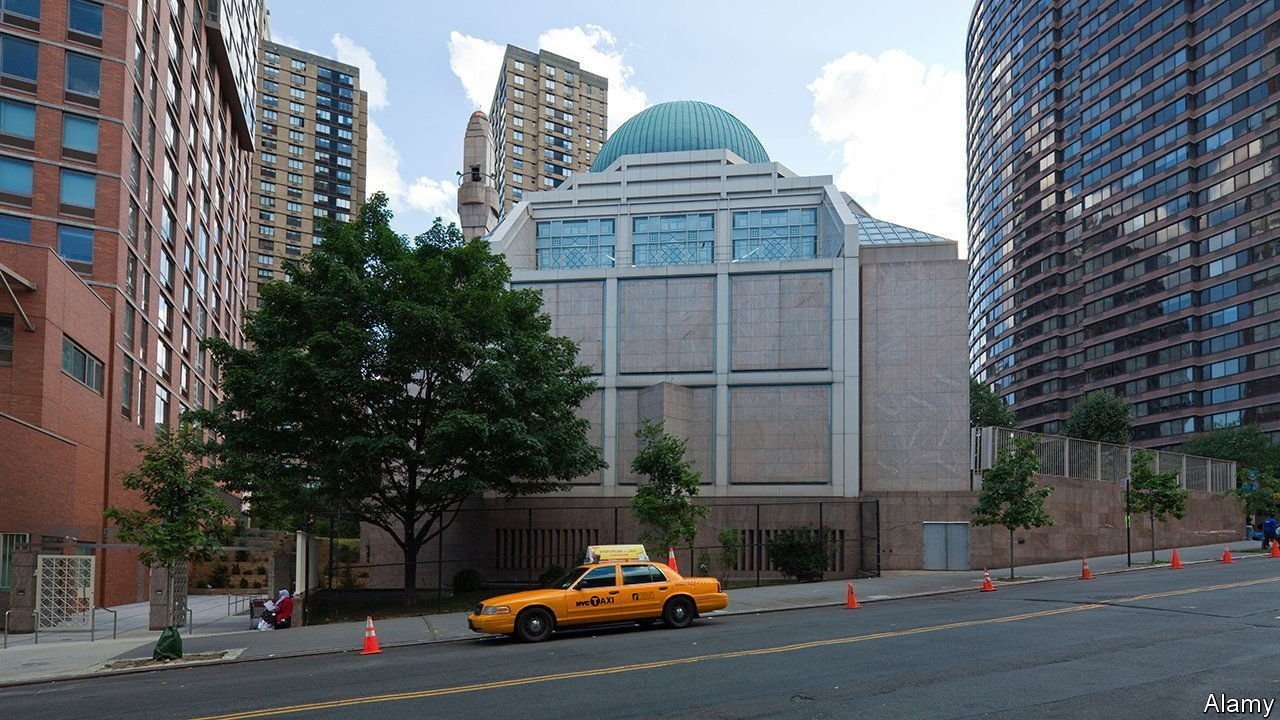
ABOUT A THOUSAND years ago, did something happen in Muslim thought which made the Islamic world resistant to social, intellectual and scientific innovation? As Mustafa Akyol, a Turkish-born writer who lives in America, points out in his new book, “Reopening Muslim Minds”, there are two sorts of people who say “yes” to that question.
The first camp consists of mainstream Sunni Muslim theologians, who rejoice in the fact that in the 11th century, their religion cleansed itself from the alien influence of ancient Greek philosophy—of Aristotle, in particular—and generally from attitudes which emphasised reason and observation as opposed to the omnipotence of God. The second camp is made up of liberal Western historians who take a sceptical view of Islam’s development. Some maintain that precisely when the medieval Christian West was rediscovering the rationalist spirit of ancient Greek thought, the Muslim world was rejecting that spirit and limiting its own prospects. Muslims find that view patronising and Orientalist.
For both camps, a pivotal role is played by Abu Hamid al-Ghazali, a philosopher who died in 1111. Among those who deplore his legacy, much is made of the fact that al-Ghazali challenged the laws of cause and effect. When a piece of cotton was set on fire, he famously wrote, this was because of a series of micro-events ordained by God—it was not really the flame that caused the blaze. (If this sounds surreal, remember that very similar debates were going on in Christendom.)
With a nice penchant for presenting arcane points in accessible terms, Mr Akyol charts an alternative view. In some ways, he goes along with the Islamosceptics and even outbids them. He affirms that Muslim thought took not one but several wrong turns. This is reflected in his chapter titles, such as “How We Lost Universalism”, “How We Lost Morality” and “Why We Lost Reason, Really”.
As a Muslim, however, he feels impelled to chart an upbeat future for his faith. The body of Islamic thought, he argues, has always contained more liberal and open-minded ways of thinking, and these can still win out. It might be true that harsh, anti-rational tendencies prevailed in the early medieval era, but this reflected political expediencies. The absolute freedom of God was emphasised in a way that underpinned the absolute freedom of the caliph to act, rule and conquer. In the 21st century, those expediencies can be set aside, in Mr Akyol’s view.
He is not alone in proposing a more liberal reading of Islam, but where he stands out—controversially—is in the alternative vision he proposes. In Western terms, he is not just a liberal but a libertarian; he is a fellow of the Cato Institute, a think-tank in Washington that takes a purist view of freedom. Mr Akyol is an admirer of the American model of church-state separation, which allows individuals to be as pious or as secular as they wish. He thinks Muslims would be well served by this political order.
That has led to lively debates with a fellow Muslim, and fellow member of the Washington commentariat, Shadi Hamid, who is a senior fellow of the Brookings Institution, another think-tank. Mr Hamid, an American of Egyptian background, has argued that Islam has always been—and will probably remain—relatively theocratic, not individualistic. At least in mainly Muslim countries, the religion’s followers will tend to dream of political arrangements that encourage people to lead virtuous Islamic lives; that is different from the individualist spirit which has won out in the historically Christian West.
Mr Akyol thinks that in its view of the world, governance and politics, Islam can and should take some leaves out of the Christian world’s book; Mr Hamid thinks that is very unlikely to happen. A different perspective again is offered by an eminent American observer of Islam, Jonathan Laurence of Boston College, in a forthcoming book entitled “Coping With Defeat”.
In a closely argued, contrarian piece of scholarship, he maintains that the main branches of Islam and Christianity have actually followed similar paths over the past two centuries. In both cases, a once all-powerful religious institution—the Islamic caliphate, abolished in 1924, and the papacy—has ceded huge power to nation-states. Many tasks, from education to justice, have been transferred from spiritual to secular control, he shows.
His point is well made, but it needs a qualification. In many historically Catholic countries, the state has indeed taken over many jobs from the church, while also shoring up the residual power of the church through concordats which give the bishops a say over, for example, education or broadcasting. In most Muslim countries, the state is deeply involved in religion: not, however, to prop up a historic faith but rather to restrain a spiritual force—popular Islam—so strong that it could easily become uncontrollable. In that respect, the recent trajectories of Islam and Christianity diverge starkly.
Both forms of state intervention are very different from the absolute state neutrality towards religion which is the ideal solution proposed by Mr Akyol. But as an American-influenced optimist, he would argue that things can change. In the Middle Ages, he has pointed out, Christian authorities practised worse persecution than Muslim ones did. There is no reason, in theory, why Islam should not regain the moral lead.
American think-tanks and campuses, it might be observed, can be a very stimulating place to mull the past and future of Islam. Unfortunately there are very few historically Muslim countries where debate is so free and wide-ranging.






